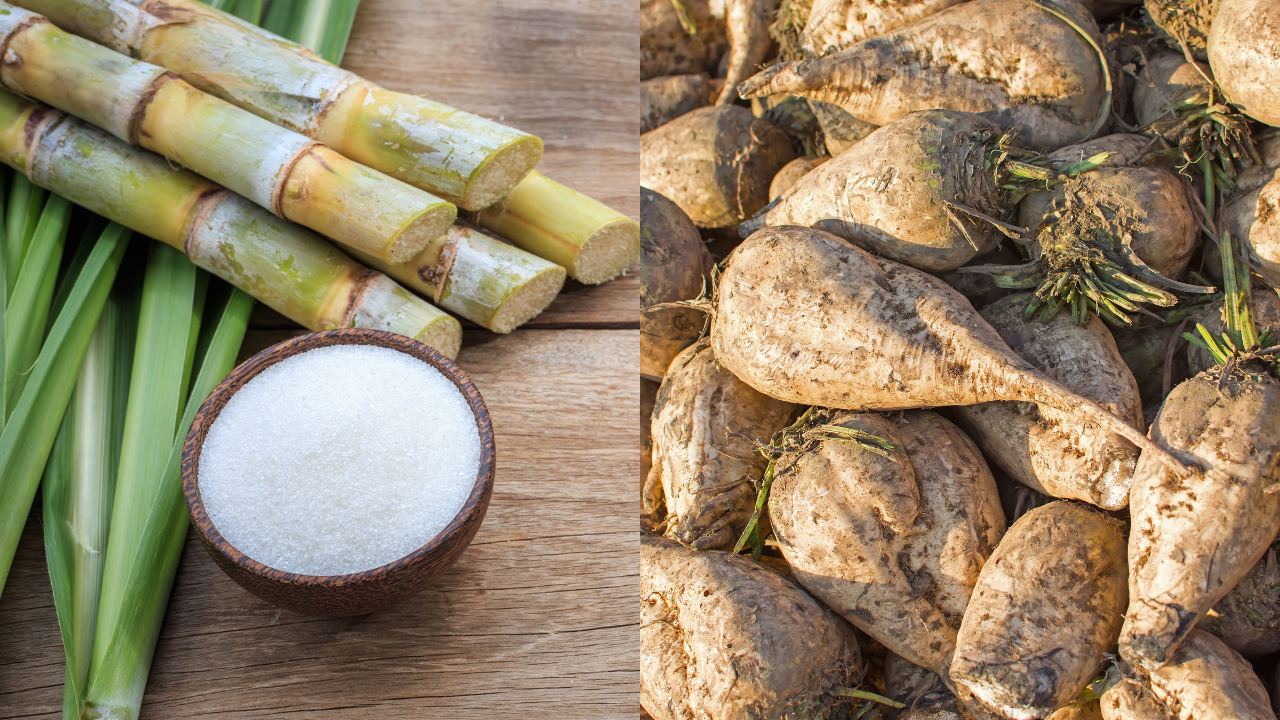Examining beet sugar vs cane sugar reveals distinctions in production costs and distribution.
Examining beet sugar vs cane sugar reveals distinctions in production costs and distribution.
Blog Article
Discover the Uses and Perks of Beet Sugar Vs Cane Sugar in Your Daily Diet Regimen
Discovering the distinctive high qualities of beet and cane sugar exposes even more than simply their sweetening capabilities; it highlights their unique effect on wellness and cookeries. Beet sugar, recognized for its refined flavor, is usually preferred in fragile desserts, whereas cane sugar, with its tip of molasses, adds richness to robust dishes. Each type holds its very own nutritional profile and glycemic effects, welcoming a deeper understanding of their roles in a balanced diet plan and lasting usage techniques.
Beginning and Production Procedures of Beet and Cane Sugar

The unique climates and soil kinds needed for expanding sugar beets and sugarcane add to differences in their growing techniques and geographic circulation, affecting the business economics and sustainability of their production. beet sugar vs cane sugar.
Nutritional Comparison Between Beet Sugar and Cane Sugar
Regardless of originating from different plants, beet sugar and cane sugar are nutritionally extremely comparable, both primarily including sucrose. Each supplies regarding 4 calories per gram, translating to about 16 calories per tsp. Structurally, both sugars are made up of around 99.95% sucrose, with very little quantities of other compounds like wetness and trace element, which do not dramatically alter their nutritional profiles.

Eventually, when choosing between beet sugar and cane sugar based upon nutritional content alone, both deal the same benefits and downsides as they are essentially types of the exact same particle-- browse around these guys sucrose, supplying fast energy without various other nutrients.
Effect On Health And Wellness: Glycemic Index and Caloric Content
Discovering better into the impacts of beet sugar and cane sugar on health and wellness, it is crucial to consider their glycemic index and calorie web content. The glycemic index (GI) of both beet and cane sugar is around 65, classifying them as high-GI foods, which can trigger fast spikes in blood glucose levels.
Each type of sugar includes about 4 calories per gram, making their calorie material equivalent. For those keeping an find out this here eye on calorie consumption, particularly when managing weight or metabolic wellness conditions, comprehending this equivalence is essential (beet sugar vs cane sugar). Nevertheless, excessive consumption of any type of high-calorie, high-GI food can contribute to wellness issues such as obesity, cardiovascular disease, and insulin resistance.
Environmental and Economic Considerations of Sugar Manufacturing
Beyond wellness impacts, the manufacturing of beet and cane sugar likewise raises substantial ecological and economic problems. Sugar beet farming often tends to require cooler environments and has a reduced geographical impact contrasted to sugar cane, which grows in exotic areas.
Additionally, the use of pesticides and plant foods in both beet and cane sugar growing can lead to soil degradation and contamination, additional affecting biodiversity and regional water bodies (beet sugar vs cane sugar). The selection in between growing sugar beet or cane frequently hinges on regional ecological conditions and economic elements, making the sustainability of sugar manufacturing a complex concern
Culinary Applications and Flavor Distinctions
While the environmental and financial aspects of sugar production are certainly substantial, the choice in between beet and cane sugar likewise influences cooking applications continue reading this and taste profiles. Beet sugar, derived from the sugar beet plant, is understood for its extremely neutral taste.
Cane sugar, extracted from sugarcane, typically preserves molasses traces, which pass on a distinctive richness and depth. This small molasses taste improves the intricacy of baked products, sauces, and marinades. It is especially preferred in things where a caramel undertone is wanted, such as in brownies or gingerbread. Furthermore, the mild variation in dampness material in between beet and cane sugar can affect the texture and uniformity of meals, making cane sugar a recommended selection for specific recipes that take advantage of its distinct residential properties.

Conclusion
Finally, both beet and cane sugar have distinctive beginnings and manufacturing processes, using comparable dietary profiles with mild differences in salt material and taste. While their influence on health, specifically regarding glycemic index and calories, is similar, the selection in between them usually boils down to ecological, financial elements, and certain culinary requirements. Recognizing these elements can assist consumers in making notified decisions that straighten with their health objectives and flavor choices.
Report this page